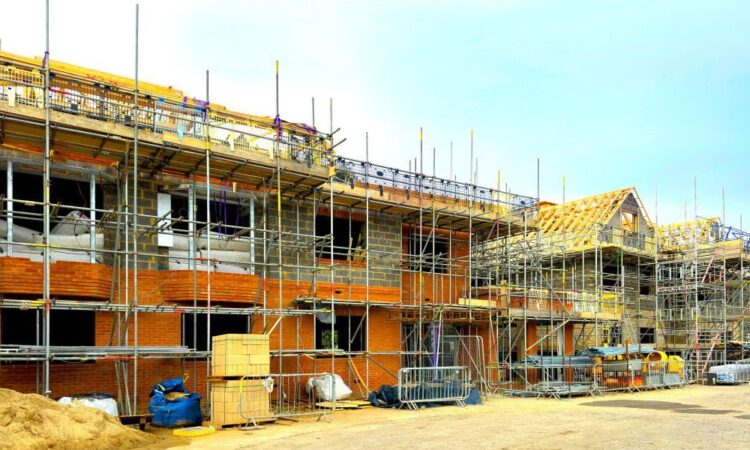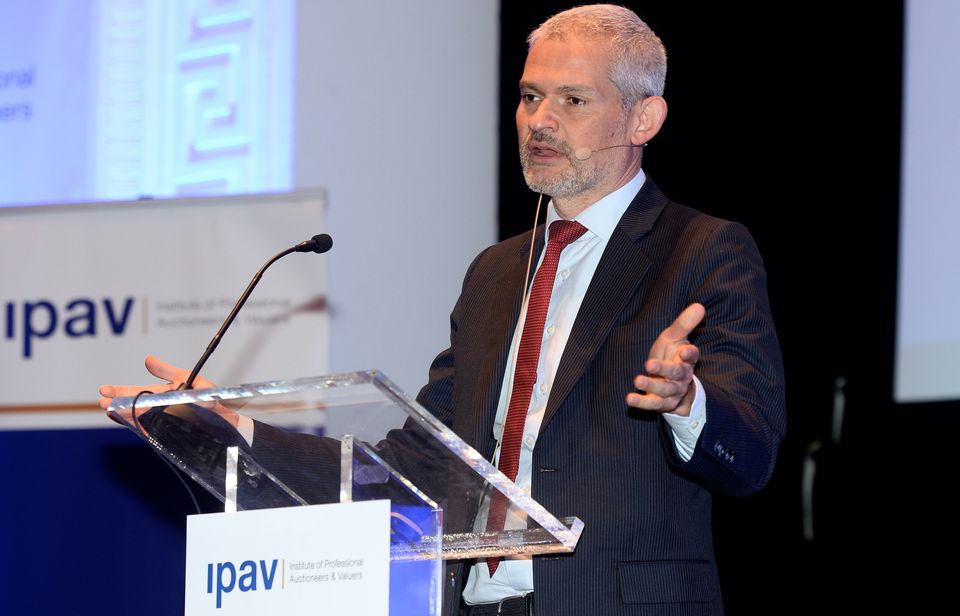
Luca Bertalot, secretary general of the group which represents more than 2,000 European lenders, said he is concerned about the adverse impact of poor housing affordability and rising living costs on families trying to buy a home.
He said banks must try to make the market more sustainable and “be attentive to the young generation”.
High interest rates and inflation were having an negative affect, he added.
“Inflation is eroding the purchasing ability of families, and is also a problem for energy costs which are growing at a higher rate than other things.
“Studies show when costs are increasing or inflation is rising, the priority for families is education for their kids. So if we don’t control household running costs, we will impact the future of the young generation growing up in that house.”
Irish mortgage interest rates are among the highest in the euro area.
Central Bank of Ireland figures show interest rate hikes over the past year mean repayments on a typical €300,000 new-buyer mortgage have increased by about €3,300 a year.
The average rate offered on new Irish mortgages in September was 4.3pc. The average rate in the euro area is 4pc.
Average rates here a year ago stood at just under 2.6pc — but then the European Central Bank launched a series of 10 back-to-back rate hikes in an effort to try and stifle rampant inflation.
Mr Bertalot said he expects interest rates will reduce next year, if inflation remains stable or decreases.
Luca Bertalot, secretary general of the European Mortgage Federation
Annual inflation stood at 5.1pc last month, according to the CSO, down from 6.4pc in September.
However, the indications are that interest rates may remain high until July.
“Families have been exposed to a lot of unexpected costs, with energy and inflation. I was convinced the most recent increase would be the ECB’s last, but with the geopolitical situation after what happened in October, who knows what will happen next,” said Mr Bertalot.
“Gas could be more expensive, so inflation could still be a problem — even though it is going down now.
“The geopolitical landscape is so unpredictable it is hard to make any kind of a forecast.
“That is why I think the industry has to propose a new kind of product, especially for young people, to allow them get a mortgage and step on the property ladder and get access to housing.”
Green mortgages, where customers are given discounts on loans for home improvements, offer one solution and should be more available, said Mr Bertalot, but young people will also need further supports to enter the housing market.
Earlier this year, a note from the Central Bank of Ireland said green mortgages accounted for one third of mortgage lending, but the Banking and Payments Federation of Ireland (BPFI) — which is a member of the EMF — said more financial supports are needed to encourage retrofitting and meet sustainability targets.
“In some cases a bank may give a green loan and say: ‘If you speed up a retrofit to save money on energy, we will freeze the monthly instalments until you finish the renovation work.’
“When you finish the renovations, your house has a higher value. The mortgage is more secure, so you pay less. On top of that, your monthly expenses are reduced and it’s likely your house is [going to perform] better than before.
“The mortgage industry can make a big contribution, but we need cities and regional authorities to do something to make areas better places to live.”
Mr Bertalot was speaking last week during a visit to Dublin for a conference hosted by the Institute of Professional Auctioneers and Valuers (IPAV).
IPAV chief executive Pat Davitt said buyers will need to see interest rates come down much earlier than July, probably in the first quarter on 2024.
Mr Davitt agreed new products are needed to support young buyers.
He said these could include long-term 40-year mortgages or products with an extended fixed rate over 15 to 20 years.
“For younger people, longer mortgages and terms fixed for longer than two or three years would be more attractive. Even if that term was 15 to 20 years, it is going to get them to a situation where they will be better off and could pay off the mortgage early,” said Mr Davitt.
More competitive green mortgage rates are also needed, he said.
“If you’re retrofitting a house and get a €100,000 mortgage with 0.25pc off the repayments, is it really enough to encourage people to make that spend?
“I think they should be more enticing, and the discount needs to be more than 0.25pc.”







